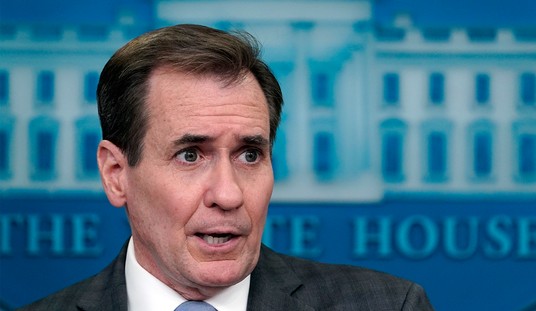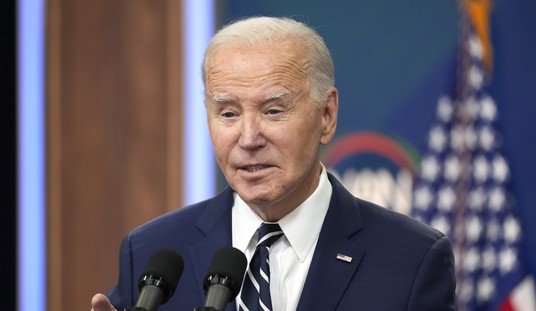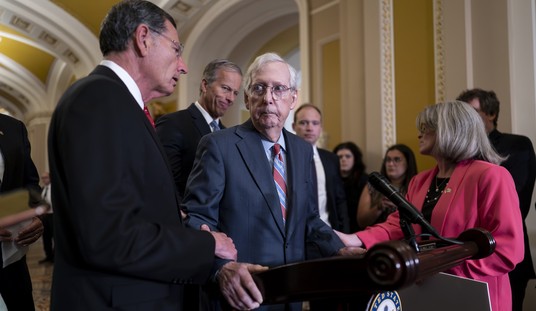
It is becoming more and more obvious with each passing day that the people telling us what to do about Wuhan virus are little more than walking-talking examples of the ‘appeal to authority’ logical fallacy. There arguments run something like this. “I’m a self-important and well-connected computer modeler and if you don’t shut down your economy my model predicts [plug your favorite number in here, all of them have been used] people will die each day.” Based on nothing more than a bald-faced assertion by people using models that haven’t been tested and which have been proven wrong time and again backed by a deeply dishonest media that pushed the claims as though they were not the obvious balderdash that they were, we shut down the economy. The next phase was “I’m a real scientist so impossibly famous that you can’t possibly know what I know and I say that we all have to wear face masks and stay 6-feet apart and use Dran-o suppositories to be safe.” Never mind that there is zero empirical evidence that either mask wearing or social distancing is anything more than a placebo. And the last phase has been, “I’m a big brained epidemiologist and you must follow my guidelines for returning your life to normal.” Again, there is no evidence whatsoever that any of the criteria given by the CDC or anyone else have anything to do with public safety because the methods of measure are so half-assed or downright corrupt.
Three weeks ago, Georgia Governor Brian Kemp decided that the damage to humans and to the economy from the ridiculous shutdown was exceeding any possible harm from Wuhan virus and announced that he was opening Georgia.
The media that is heavily invested in inflicting pain and suffering on folks who have jobs where showing up for work is a basic requirement were quick on the attack. This is Dana Milbank, the portly, dwarfish, one-man Fifth Column from the Washington Post had this to say in an article headlined Georgia leads the race to become America’s No. 1 Death Destination
Whether you’re going to heaven or hell, the old joke goes, you’ll have to change planes in Atlanta.
But Georgia Gov. Brian Kemp is proposing to offer a new nonstop service to the Great Beyond: He has a bold plan to turn his state into the place to die.
Kemp, a Republican and an ally of President Trump, just called for the reopening within days of his state’s gyms, fitness centers, bowling alleys, body-art studios, barbers, nail salons, cosmetologists, aestheticians, beauty schools, massage therapists, theaters, private social clubs and dine-in restaurants.
He’s doing this even though the state ranks near last in testing, even though it’s not clear that covid-19 cases are declining there, and even knowing “we’re probably going to have to see our cases continue to go up,” as Kemp himself said.
By the way, I have yet to have anyone explain to my satisfaction the purpose of testing large numbers of people…or anyone who has not presented with symptoms…as the test results are invalid the moment the test sample is takenn as the next thing you touch or lung biscuit hacked up on you could contain Chinese Lung AIDS. But we gotta have tests.
We need cheap, quick, tests. Test kids before they enter school, test them after. Test waiters, bus drivers, lawyers, the same way. Test everybody. Quarantine the positives. This is the only way people will feel comfortable working, shopping and dining until a vaccine/treatment. https://t.co/uHKFmc35Dc
— Jonah Goldberg (@JonahDispatch) May 9, 2020
The Atlantic took it a bit further with the epic Georgia’s Experiment in Human Sacrifice by some creature named Karen Amanda Mull.
Public-health officials broadly agree that reopening businesses—especially those that require close physical contact—in places where the virus has already spread will kill people. Even so, many other states are quietly considering similar moves to Georgia’s. Most are taking a more measured approach—waiting a bit longer to reopen, setting testing or infection benchmarks that must first be met—but some, such as Oklahoma and Colorado, have already put similar plans in motion. By acting with particular haste in what he calls a crucial move to restore economic stability, Kemp has positioned Georgia at the center of a national fight over whether to stay the course with social distancing or try to return to some semblance of normalcy. But it’s easy to misunderstand which Americans stand on each side. Many Georgians have no delusions about the risks of reopening, even if they need to return to work for financial reasons. Among the dozen local leaders, business owners, and workers I spoke with for this article, all said they know some people who disagreed with the lockdown but were complying nonetheless. No one reported serious acrimony in their communities.
Instead, their stories depict a struggle between a state government and ordinary people. Georgia’s brash reopening puts much of the state’s working class in an impossible bind: risk death at work, or risk ruining yourself financially at home. In the grips of a pandemic, the approach is a morbid experiment in just how far states can push their people. Georgians are now the largely unwilling canaries in an invisible coal mine, sent to find out just how many individuals need to lose their job or their life for a state to work through a plague.
For weeks on end you haven’t been able to swing a stunted cat in any Twitter conversation (I know, I laughed writing that, too) without slapping square on the forehead some clown lecturing everyone about R0 and prattling on and on about lily pads:
There’s an old brain teaser that goes like this: You have a pond of a certain size, and upon that pond, a single lilypad. This particular species of lily pad reproduces once a day, so that on day two, you have two lily pads. On day three, you have four, and so on.
Now the teaser. “If it takes the lily pads 48 days to cover the pond completely, how long will it take for the pond to be covered halfway?”
The answer is 47 days. Moreover, at day 40, you’ll barely know the lily pads are there.
That grim math explains why so many people — including me — are worried about the novel coronavirus, which causes a disease known as covid-19. And why so many other people think we are panicking over nothing.
We are, indeed, blessed to live in an age where virtually everyone on Twitter is an authority on both statistical methods and epidemiology. The problem with the lily pad analogy, of course, is that the lily pads are immortal. If the lily pads live a maximum of 4 or 5 days…or if most of the lily pads don’t reproduce…then it is no longer an argument winner.
Anyway, we now have three weeks of data and we can answer the question about what kind of a New York-esque hell hole Georgia has become (just kidding, as the old saying goes, if I had one brother in jail and one in Georgia, I’d break the one out of Georgia first).

CREDIT: Georgia Department of Public Health as of 5-11-20
The bottom line is that Governor Kemp made the right call. The number of diagnosed case in Georgia is dropping like a stone. As are the number of hospitalizations for Wuhan virus:
Today marks the lowest number of COVID-19 positive patients currently hospitalized statewide (1,203) since hospitals began reporting this data on April 8th.
Today also marks the lowest total of ventilators in use (897 with 1,945 available).
We will win this fight together! pic.twitter.com/byxACEiQCp
— Governor Brian P. Kemp (@GovKemp) May 9, 2020
What we’ll never know is whether the lock down had any impact whatsoever on the spreading of the virus.
Compare and contrast this with the outcomes in New York and Pennsylvania and Michigan and Illinois and other places that have insisted on the most draconian restrictions on civil liberties and commerce.
The way forward is clear. We are better off treating this virus like we’d treat any other virus. We need to take reasonable precautions. We need to focus on protecting the most vulnerable, like the residents of nursing homes. We need to continue research for treatments (gotta say, I don’t believe a vaccine is ever going to happen). We need to go on about our lives. And we need to identify the people who caused this calamity to be inflicted upon what is ostensibly their own country and make sure they are never taken seriously again.














Join the conversation as a VIP Member